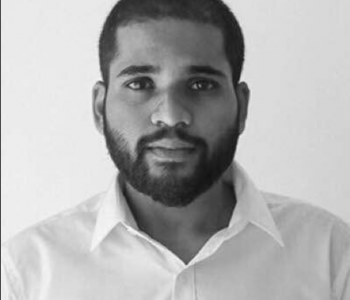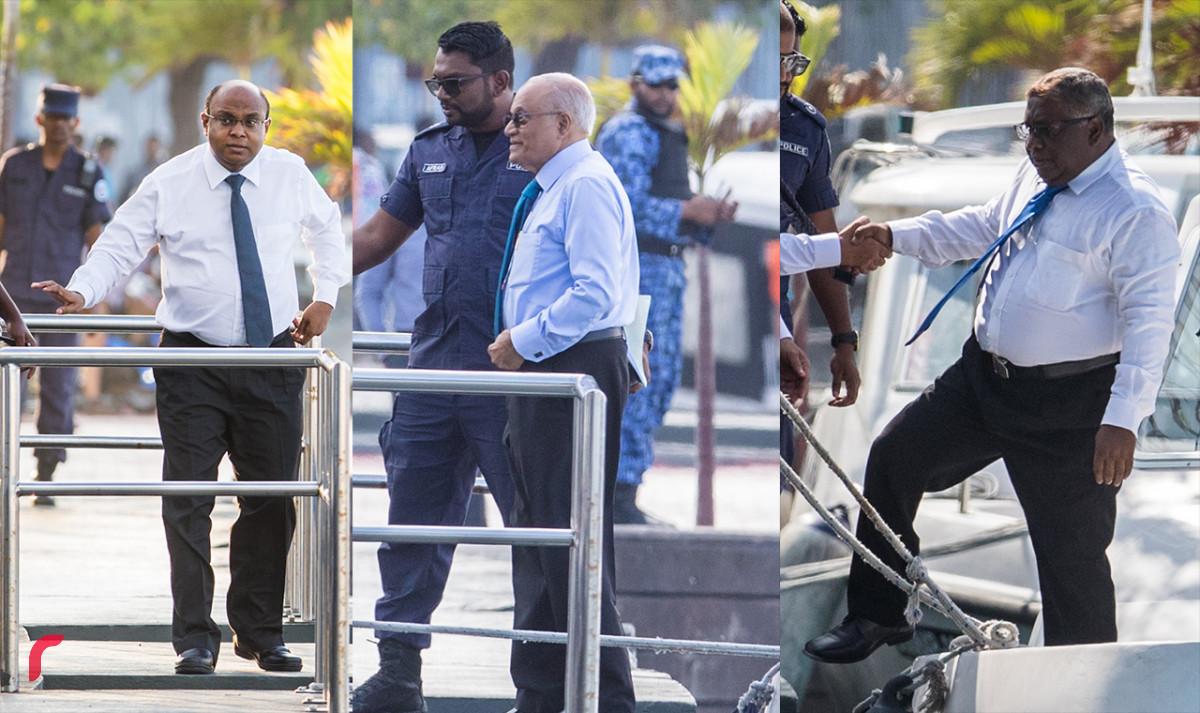Chief Judge Adam Arif had concluded evidentiary hearings on Wednesday


(L-R) Chief Justice Abdulla Saeed, ex-President Maumoon Abdul Gayoom, Justice Ali Hameed, being summoned to the Criminal Court
The Criminal Court judge presiding over the case has ruled to move forward with the obstruction of justice charges against former president Maumoon Abdul Gayoom and two justices of Maldives’ apex court.
Chief Judge Adam Arif had concluded evidentiary hearings on Wednesday and ruled that the allegations are substantial enough to move forward to trial, on the grounds that it is more probable than not that the defendants committed the crime they stand accused of.
While Judge Arif made this ruling at the protest of the defendants, he had said that this ruling may be subject to change based on pre-trial motions, which all three defendants have been given opportunity to submit until May 3rd.
Maumoon, Chief Justice Abdulla Saeed, and Justice Ali Hameed had all said that the obstruction charges put forth against them are vague and inadequate to prove any foul-play.
Maumoon’s legal defence had put forth the argument that given how his client’s detention is arbitrary and proceedings pertaining to the case have been conducted in a ‘legal gray area’, the allegations made against him are void as well.
Chief Justice Saeed’s defence said that there is no strong evidence to prove that he was involved in such a crime and the allegations, as they have been put together by prosecutors, undermine the legal principle of ‘burden of proof’. Judge Arif had denied Saeed's request for a two-week period to submit pre-trial motions.
Justice Ali Hameed had described the charges as ‘complete and utter lies’ that were based on hearsay and personal disdain. Justice Hameed also highlighted the point of ‘burden of proof’ and said that proceedings for criminal allegations must be based on solid proof, which he said was non-existent in the case against him.
The trio were apprehended hours after incumbent President Abdulla Yameen announced a state of emergency in the Maldives late 5th February. They were initially brought into state custody on allegations of bribery and conspiring to overthrow the government.
On 1st February, the Supreme Court released a set of rulings to; free nine individuals deemed to be detained unfairly, reinstate lawmakers said to have been dismissed for floor-crossing, and absolve the Judicial Services Commission of authority to hear cases about adjudicators on the top court’s bench.
Shortly after the ruling, the cabinet declared that it will not be enforcing the ruling on the basis that its validity is yet to be decided. President Abdulla Yameen later described the ruling as a judicial coup and the 45-day state of emergency – which led to nightly protests which were violently dealt with by the police – to have been a necessity.